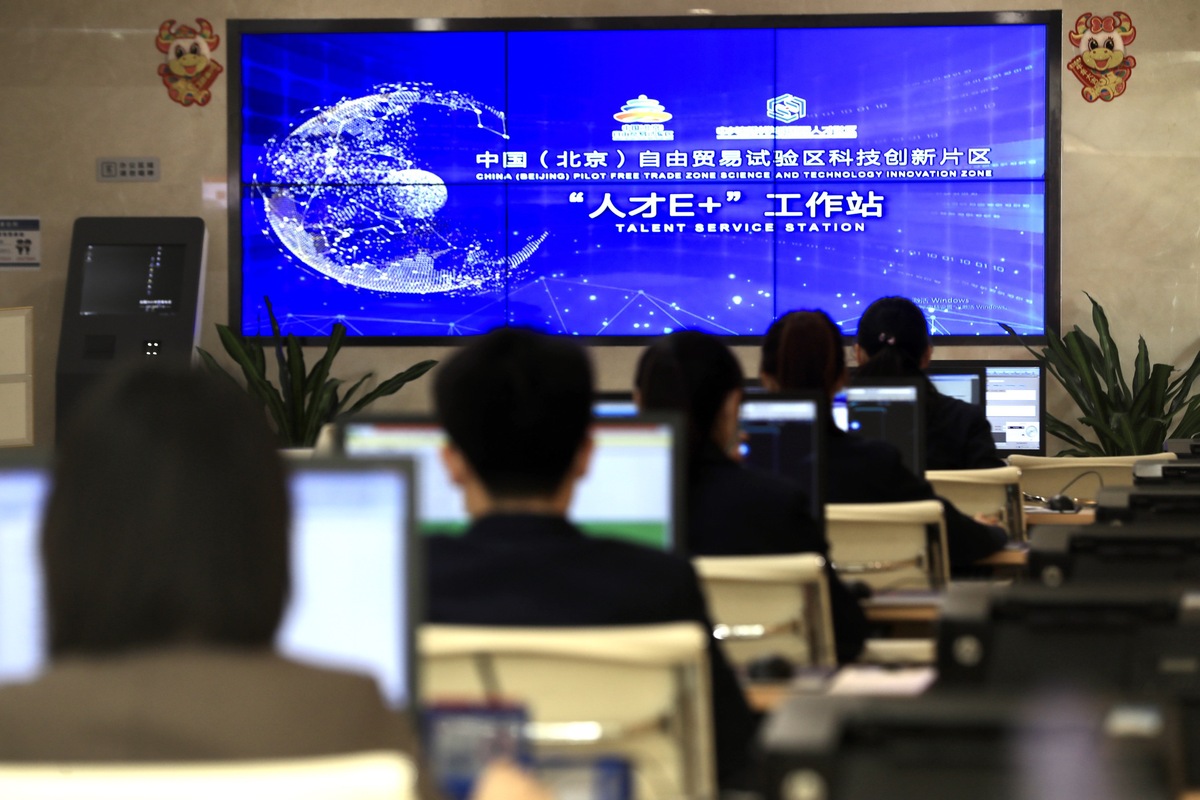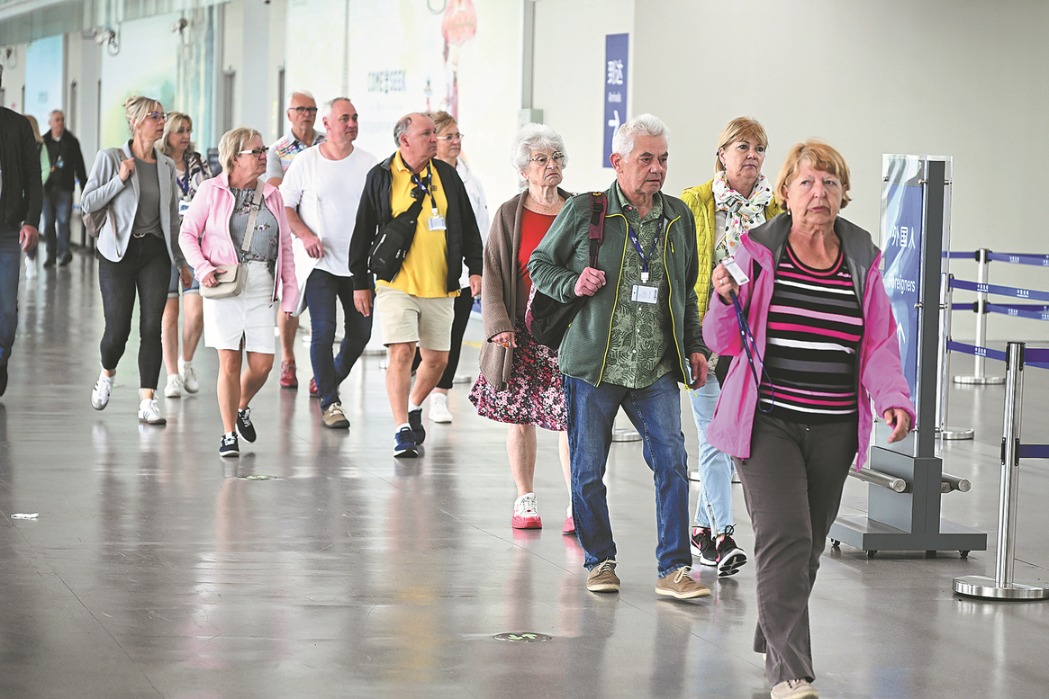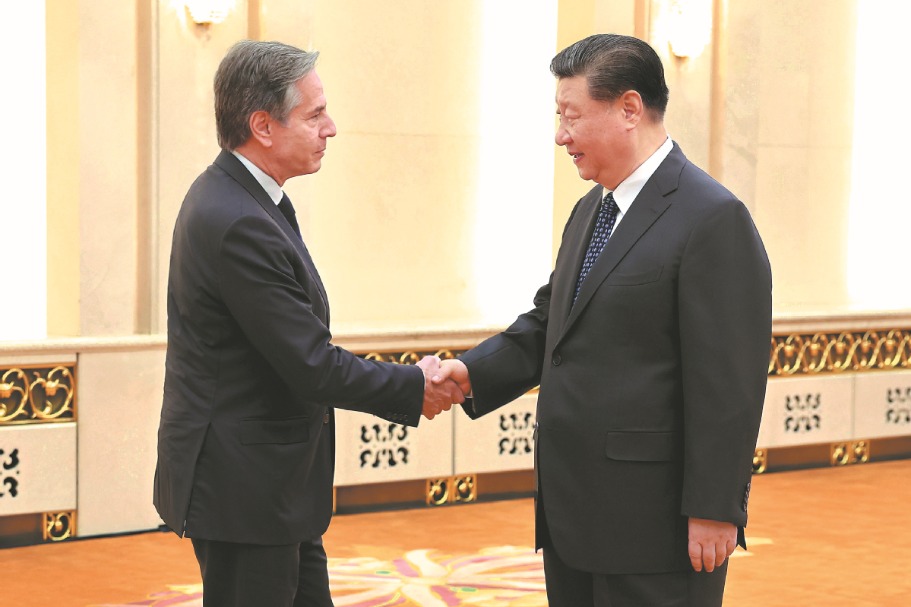Beijing to deepen opening-up efforts in service sector
By DU JUAN | CHINA DAILY | Updated: 2022-02-11 10:16

Beijing will further deepen opening-up efforts in the service sector and make cross-border trade more convenient based on achievements resulting from the capital's "two zones" construction project, officials said on Thursday.
The two zones are a demonstration area for the service industry in the capital, approved by the central government in 2015, and a free-trade zone, approved in September 2020.
Beijing completed more than 90 percent of the reform and innovation tasks related to the two zones by the end of last year, Liu Meiying, spokeswoman for the city's commerce bureau and the office in charge of the two zones work, said at a news conference held at the 2022 Beijing Media Center on Thursday.
"Beijing's opening-up of the service sector and the establishment of the FTZ have created significant opportunities that will drive high-quality development in the city," she said.
The zones offer preferential policies for both foreign and domestic investors in sectors such as science, culture, entertainment, finance, tourism and healthcare.
Liu said the city government will continue to promote reform and strengthen coordination between government departments this year.
"At present, the two zones' key areas-each of which has different focuses, including scientific innovation, international commerce and high-end manufacturing-have supported the full opening-up of Beijing's service sector," she said.
"We have supported the city's international scientific innovation center's construction by carrying out preferential policies for companies. For instance, the approval process for high-tech companies in key fields has been cut by 80 percent in terms of time and requirements."
The two zones' policies have also accelerated the city's construction of an international consumption center, one of the city's major goals.
Beijing has carried out a pilot program involving cross-border e-commerce sales of pharmaceutical products that resulted in the number of pilot drugs increasing to 66, with more than 1.2 million orders for those drugs.
Last year, Beijing attracted more than 900"first stores"-a reference to a brand's first brick-and-mortar outlet in the city. Of those, 134 were for international brands, accounting for 15 percent of new first stores in the city last year.
To create a world-class business climate, Beijing has offered many new measures to attract talent.
Lu Xiaobo, spokesman for the Beijing Municipal Human Resources and Social Security Bureau, said the capital is making efforts to establish a talent-development mechanism that will be globally competitive.
Beijing has approved overseas professionals in the two zones to take China's occupational qualification tests and has acknowledged around 82 overseas occupational qualifications in 10 major fields including finance, education, construction and healthcare, he said.
The finance sector also plays an important role in the two zones' construction. According to the Beijing FTZ plan, the city government will support the People's Bank of China, the country's central bank, in its efforts to establish a digital currency zone and digital finance system in Beijing.
























